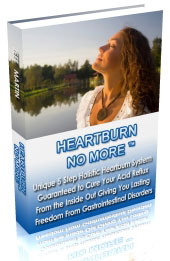
Acid reflux tends to occur when the LES valve is functioning abnormally and allowing stomach acids, pancreatic digestive juices, bile salts, and even food to rise up into the esophagus. Such abnormal functioning can include a lower-than-normal pressure in the valve, or it may open at inappropriate times for some reason.
If you have a condition called a hiatal hernia, your sphincter may have displaced into your chest, causing it to function abnormally. When acid reflux occurs and the aforementioned substances rise up to the level of the esophageal lining; severe irritation and discomfort usually follows.
There are many different kinds of triggers that can set off these irritations and symptoms. If you experience acid reflux, you should be aware of the various common GERD triggers so that you know what to do to prevent is recurrence. Such triggers can include the following, which cause the lower esophageal sphincter to relax and therefore contribute to the worsening of its symptoms:
• Lifestyle – many different lifestyle choices can cause you to experience heartburn, so take note of the GERD unfriendly activities in your life to allow yourself the opportunity to correct them and ease your symptoms. These unfriendly activities may include drinking alcohol, smoking, being overweight or obese, and slouching or maintaining poor posture. Living a high-stress lifestyle is also among the most common contributors to aggravating acid reflux symptoms.
• Diet – many foods are known to lead to acid reflux symptoms. Foods to avoid include high-acid foods such as citrus fruits and tomatoes, spicy foods, fried and fatty foods, chocolate, caffeinated beverages, sulfuric foods such as garlic and onions, and mint flavorings.
• Eating Habits – beyond the food you’re eating, your eating habits can also encourage or discourage heartburn. GERD eating habit triggers include eating large infrequent meals instead of several smaller meals, sudden dietary change, and eating before lying down or sleeping instead of waiting two or three hours.
• Medications – sometimes the drugs you’re taking for other conditions can aggravate your acid reflux symptoms. Drugs known for encouraging heartburn are theophylline (Tedral, Marax, Hydrophed, Bronchial, and Quibron), calcium channel blockers, antihistamines, and nitrates.
• Health Conditions – these can include many different kinds of medical, health, and body conditions, such as pregnancy, rapid weight gain, diabetes, the release of certain hormones, a hiatal hernia, or even over-exercising.
To learn, simply click here: Cure Your Heartburn



